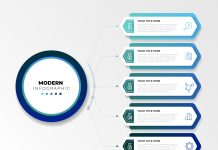In the modern B2B ecosystem, data is one of the most valuable assets. From customer interactions to sales transactions and operational metrics, businesses collect massive volumes of data every day. However, managing this data effectively is no easy task, especially when done manually. Enter AI and automation, the game-changers that are transforming B2B data management into a faster, smarter, and more scalable process.
AI and automation tools have not only redefined how businesses collect and store data, but also how they interpret and use it for strategic decision-making. Let’s dive deep into how these technologies are reshaping the B2B data management landscape.
1. Automating Data Collection Across Channels
In B2B environments, data comes from various sources—emails, websites, CRMs, social platforms, ERP systems, and more. Traditionally, collecting this data required manual effort and multiple teams. With AI-powered web crawlers and automated data pipelines, businesses can now collect data in real-time from multiple channels. These tools help eliminate delays, reduce data silos, and ensure consistency.
2. Real-Time Data Integration and Synchronization
One of the key benefits of automation is real-time data integration. Automation platforms allow seamless syncing of data across departments, software systems, and databases. When sales, marketing, and operations all have access to the same up-to-date information, it drastically improves collaboration and speeds up decision-making.
3. Intelligent Data Cleansing and Validation
Dirty data is one of the biggest challenges in B2B data management. Duplicates, inconsistencies, missing fields, and outdated entries can cause serious damage to a company’s outreach and performance metrics. AI algorithms can quickly detect such issues and either correct them or flag them for human review. This significantly improves data quality and reliability.
4. Enhanced Decision-Making with Predictive Analytics
By using machine learning models, businesses can analyze historical data to uncover trends and make predictions. For example, AI can forecast sales patterns, identify high-value prospects, or even highlight at-risk customers. These insights help companies make data-driven decisions and prepare proactively rather than reactively.
5. Ensuring Data Security and Compliance
Security and regulatory compliance are major concerns in B2B data management. AI and automation tools offer enhanced security features such as anomaly detection, access control, and data encryption. Automation ensures that data handling complies with regulations like GDPR, HIPAA, or India’s DPDP Act by managing audits, data permissions, and storage policies.
6. Smarter Segmentation and Targeting
AI can segment large datasets into categories based on industry, buying behavior, location, or interaction history. This is invaluable for sales and marketing teams looking to create personalized campaigns. For instance, automated segmentation allows businesses to target clients more accurately with content and offers tailored to their needs.
7. Streamlined Workflow and Task Management
Manual workflows can be inconsistent and error-prone. AI can automate repetitive tasks like data entry, follow-up emails, and report generation. This frees up employee time, reduces the risk of oversight, and ensures more efficient project and pipeline management.
8. CRM Optimization and Automation
When integrated with CRM systems such as Salesforce, Zoho, or HubSpot, AI can automatically log customer interactions, update contact details, and suggest next-best actions. Automation tools can also generate alerts or reminders for sales teams, ensuring timely and relevant client communication.
9. Reducing Operational Costs and Boosting ROI
Implementing AI and automation doesn’t just improve efficiency—it also reduces costs. Fewer manual processes mean less need for labor-intensive tasks. Businesses can also avoid financial losses stemming from errors or miscommunication. With cleaner data and smarter insights, campaigns perform better, yielding a higher return on investment.
10. Scalable and Future-Proof Data Systems
Perhaps the biggest advantage of using AI and automation is scalability. Whether a company is onboarding new clients, launching products, or expanding into new markets, these tools ensure that data systems grow alongside the business without any disruptions or decline in performance.
Conclusion
In a world where data drives every decision, businesses can no longer afford to manage it inefficiently. AI and automation in B2B data management empower organizations to work smarter, not harder. From improving accuracy and saving time to enabling strategic insights and scaling effortlessly, these technologies are vital for any business looking to stay competitive in a digital-first marketplace.
The time to invest in AI-driven data management solutions is now. As data volumes grow and customer expectations rise, the businesses that embrace these innovations will be the ones that lead their industries into the future.
I hope you find the above content helpful. For more such informative content, please visit Techedgedemand.









